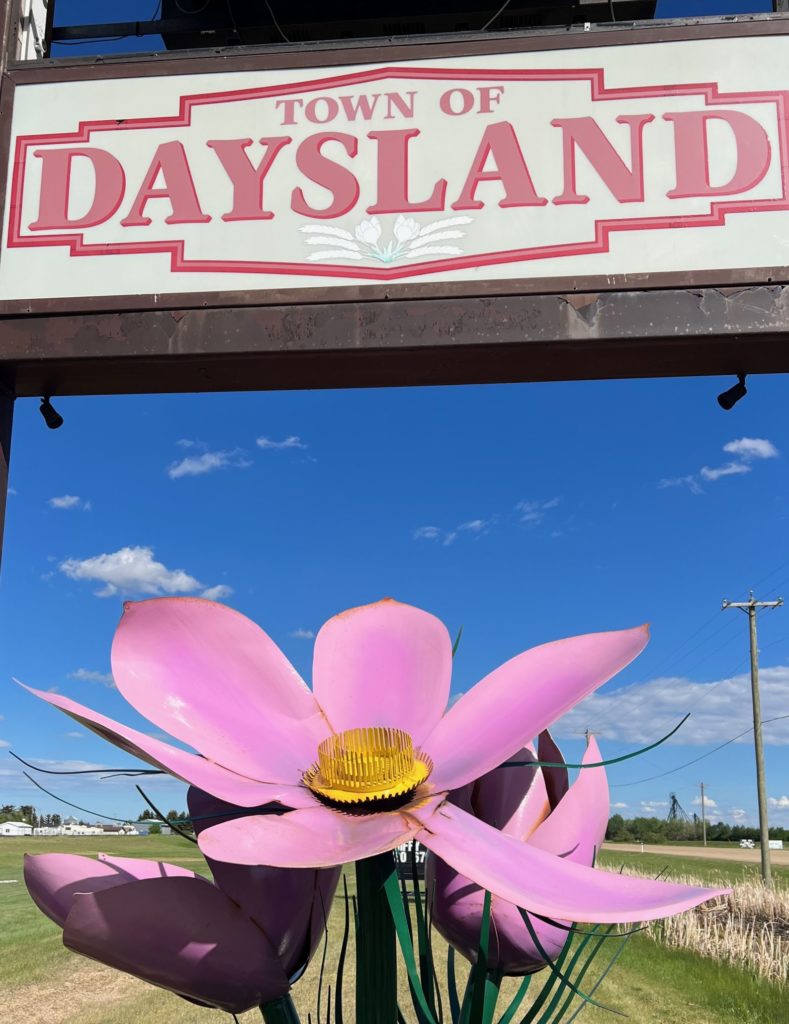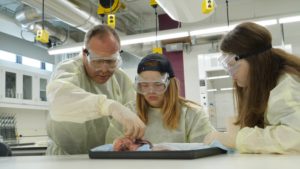
— Photo by Lorena Franchuk
The first step to embarking on a rural health-care career isn’t necessarily applying to a health-care training program.
The pathway to such a career is incredibly varied, as there are many ways to test out the profession before training.
Some of these opportunities can begin during high school—just ask Tammy Syrnyk.
In Grade 12, Syrnyk began volunteering at the Daysland Hospital. Her summer breaks were spent working as a personal care aide in medical and surgical units.
“I lived that experience by being engaged in that environment and intrinsically knowing that [health care] was of interest to me,” said Syrnyk.
“Being supported in that environment, and [learning] more about what [health-care careers] entail really solidified my plan.”
For 17 years, she worked as a registered nurse in a variety of roles including in the operating room at St. Mary’s Hospital in Camrose, before eventually becoming an advisor with Alberta Health Services (AHS) in Talent Management, Provincial Nursing Strategy. Today, Syrnyk and colleague Sarah McDonald, who is a senior advisor with AHS Talent Acquisition, work hard to promote health-care careers in rural Alberta.
“[I had] a very diverse nursing experience, so that’s why I’m super passionate about engaging students. [Some people] may [eventually] not choose health care, but that’s OK as they didn’t waste a lot of time and energy going down a pathway that was not of interest.”
-Tammy Syrnyk
McDonald’s role has her showcasing the merits of health-care careers to students.
“There are lots of options for youth and high school students to find a pathway into Alberta Health Services,” said McDonald, noting some volunteer positions can begin while still in high school.
Volunteering plays a big role in AHS, so much so that there is a department dedicated to managing the many volunteer positions in areas from pediatrics to long-term care, she said.
“For a lot of our volunteers, it’s about connecting with the patients and supporting our clinical staff in some of the work that they do [such as] bringing ice for our patients, playing games, and trying to get to know [patients] on a personal level. Each site is a little different,” said McDonald.
“It’s a good opportunity for young people to observe what the work is like and the pace of work for the different types of departments that exist in Alberta Health Services.
“It’s also a chance to actually connect with … the employees, and the patients and understand the impact that you can have [in health care].”
Some who volunteer will eventually transition into a health-care career and, for those who do not, it is an opportunity to explore the health-care system from a perspective outside of that of the patient.
“[I had] a very diverse nursing experience, so that’s why I’m super passionate about engaging students,” said Syrnyk.. “[Some people] may [eventually] not choose health care, but that’s OK as they didn’t waste a lot of time and energy going down a pathway that was not of interest.”
Prior to the pandemic, some Camrose junior high students had exposure to simulated emergency room scenarios when they learned suturing, casting, and examining simulated patients through the Young Medical Minds Program.

Dr. Chris Nichol, a family physician and the 2017 Alberta Rural Physician Award of Distinction recipient, along with a team of health professionals spent five weeks giving students a glimpse of some of the situations health professionals face.
McDonald said the program was so well received by students and health professionals that there are talks of expanding it to other rural communities to encourage more rural students to consider local health careers while they are still deciding what they want to do.
RhPAP also coordinates day-long events for high school and weekend experiences for post-secondary students to expose them to rural health-care career opportunities through its Let’s Go Rural! programs.
Young people can also experience health-care roles through high school work experiences (such as being a porter and helping transport patients from one area of the hospital to another) and “take your kid to work” day.
Some AHS programming was put on hiatus or shifted online during the pandemic, but McDonald hopes to return to in-person experiences as soon as possible.
“You will not only be supporting a great need, you’ll also be observing what’s going on in the [health-care] environment, so it gives you a better sense and understanding of how it works.
“It’s that entry point into the system.”
— Lorena Franchuk
